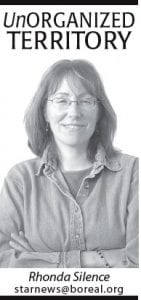I rearranged my schedule to attend the guest lecture presented by former News-
Herald
writer Ralph Latham. His Higher Education presentation was titled First, Catch
a Rabbit.
With such a catchy title, who could resist?
I knew Ralph’s talk would be thought-provoking, but fun, because he used to make me laugh with his As I see it
column. I enjoyed his wordplay and the intriguing language questions he sometimes raised. I also knew he was a poet as well as a journalist and essayist, so I knew he could offer insight into the art of writing.
I was not disappointed. I learned a lot in the all-tooshort hour and a half we spent in the Higher Education classroom. I learned that there are at least 30 ways to say walked, as in “She walked across the room.” To name just a few— she strolled, hurried, moved, sashayed, sauntered, tripped, glided, stumbled, meandered or lollygagged across the room.
I learned that although editing and rewriting usually improves literature, there comes a time to leave well enough alone. Everyone in attendance was instructed to rewrite the Thomas Paine quote These are the times
that try men’s souls.
Everyone agreed it was better left alone.
I also learned that I need to purchase a copy of The
Elements of Style
by William Strunk, Jr. and E.B. White. I’m sure I had a copy at some point in my education, but I never appreciated it as I did when I heard Ralph read his favorite “rules.”
However, I already sense that Elements
will cause me grief, as it appears to conflict with the “bible” we use around the News-Herald
office when grammar questions arise, The
Associated Press Stylebook and
Libel Manual.
You see, the AP Stylebook
insists that a comma is not necessary before the conjunction in a simple series. For example: The flag is red, white
and blue
or He would nominate
Tom, Dick or Harry.
I recall learning that the comma should be included to avoid ambiguity, in keeping with The Elements of Style.
So what to do? I believe I will continue to follow the AP guidelines, as they have been compiled specifically for newspapers. But it would be fun to see how often the rules conflict with one another.
We greatly enjoy a grammar discussion in the office. For example, writer Jane Howard and I have a running conflict over a word that isn’t found in The Elements of
Style—
internet.
I know, I know, all you modern grammarians are scrambling for paper to send me a nasty note telling me that internet should be capitalized. Yes, Webster’s New World
Dictionary
says it should be capitalized. Yes, the spell check in Microsoft Word tells me it should be capitalized. And yes, my office “bible” The
Associated Press Stylebook
tells me it should be capitalized.
I just don’t like it. I don’t like that the internet has earned capital letter status. I don’t like that we have given such importance to something that is fundamentally a utility. We don’t capitalize telephone or electricity or sewer. They are used in similar manner and they don’t warrant capitalization.
So I rebel a little every time I must write internet in a column or an article. I even changed my spell check so that it accepts the technically wrong lower-case spelling. I am hoping that my mutiny will catch on and the world will demote Internet to internet.
But my proofreading friends catch the intentional error and change it. Sigh. I wish E.B. White and William Strunk, Jr. were still around. It would be interesting to have their opinion on the internet.
Style takes its final shape
more from attitudes of mind
than from principles of
composition, for, as an elderly
practitioner once remarked,
Writing is an act of faith, not a
trick of grammar.’
E.B. White and
William Strunk, Jr.



Loading Comments